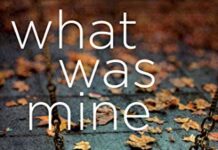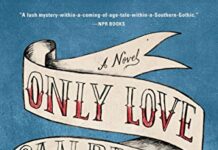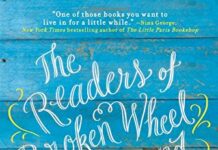
Ebook Info
- Published: 2015
- Number of pages: 337 pages
- Format: Epub
- File Size: 2.32 MB
- Authors: Leila Aboulela
Description
The new novel from three times Orange Prize longlisted Leila AboulelaNatasha Wilson knows how difficult it is to fit in. Born to a Russian mother and a Muslim father, she feels adrift in Scotland and longs for a place which really feels like home.Then she meets Oz, a charismatic and passionate student at the university where Natasha teaches. As their bond deepens, stories from Natasha’s research come to life – tales of forbidden love and intrigue in the court of the Tsar.But when Oz is suspected of radicalism, Natasha’s own work and background suddenly come under the spotlight. As suspicions grow around her, and friends and colleagues back away, Natasha stands to lose the life she has fought to build.
User’s Reviews
Editorial Reviews: Review Praise for THE KINDNESS OF ENEMIES:An Amazon Best Book of the Month“An absorbing novel . . . reminds us of the complexity of the web woven by those threads of faith, nationality, politics and history.”—New York Times Book Review“A rich, multilayered story, a whole syllabus of compelling topics. As a novelist, Aboulela moves confidently between dramatizing urgent, contemporary issues and providing her audience with sufficient background to follow these discussions about the changing meaning of jihad, the history of Sufism and the racial politics of the war on terror.”—Washington Post“Our political narrative of the war on terror too often reads like ‘Harry Potter,’ with forces of good and evil neatly and absolutely demarcated. Aboulela has written a book for grown-ups, one whose complexity is born of compassion, that speaks more forcefully than a thousand opinion pieces. By charting the pattern of human folly down the generations, she has done more than breathe life into legend. She has made the story of an obscure 19th century warrior topical and the story of three ordinary citizens in 21st century Scotland timeless.”—Anthony Marra, San Francisco Chronicle”Riveting . . . [a novel] about the wish and murmur of lives lived centuries ago— what they tell us and how we exalt them, long for them, look to them to make our existence sufferable and better still, interesting. There is a tremendous amount going on in The Kindness of Enemies—but it does not crowd the reader. Rather, it hums in hushed and meditative tones through prisoners of war in historic and contemporary fantasy rooted in reality.”—LA Times“Radiant with historical detail and vivid descriptions . . . The entire novel is, in many ways, an extended rumination on the complexities of being Muslim in the West, but it is also an invitation to see identity as more variegated than the either/or distillations of the Global War on Terror . . . an excellent historical lens through which to project a complex and, seemingly, contradictory Islamic identity from the past into the present . . . The Kindness of Enemies reads as a well-crafted but quiet plea for the kind of humanism that once allowed enemies to respect one another.”—Los Angeles Review of Books”Timely, vastly important, and brilliantly engaging.”—Bustle, 17 Of January 2016’s Best Books To Fire Up Your New Year”A fascinating combination of Leo Tolstoy’s Hadji Murat and A.S. Byatt’s Possession.”—The Millions, Most Anticipated Books of 2016“Leila Aboulela’s The Kindness of Enemies…recreates the fascinating story of the rebel of the Caucasus, Imam Samil, a 19th-century warrior who battled to defend his home against the invading Russians and united the Muslims of the region under his iconic leadership. Weaving the story of his relationship with a Georgian princess he kidnapped into a more contemporary story of mistaken terrorism, we learn much about the nature of loss, the legacy of exile, and the meaning of home at a time in our world when all three are high in our minds.”—Mariella Forstrup, The Guardian Best Books of 2015″A richly imagined novel about a half-Russian, half-Sudanese professor whose studies of a 19th-century Muslim leader become a portal into his world. The story alternates between two narratives: his in the Caucasus Mountains of the 1830s and hers in the present day.”—Travel + Leisure”In this remarkable and highly suspenseful novel Leila Aboulela moves back and forth between contemporary Scotland, where everyone is on the watch for terrorism, and nineteenth century Russia, where Iman Shamil is fighting for his freedom. The Kindness of Enemies is a wonderful evocation of faith and fate and what it means to be an outsider.”—Margot Livesey“Aboulela challenges readers with thought-provoking ideas about the meaning of jihad,then and now, and demonstrates how ignorance of another’s beliefs prohibits us from embracing our common humanity.”—Library Journal “Aboulela, winner of the Caine Prize, pens an ambitious tri-continental story covering more than 200 years and tackling themes of Islamic faith, personal heritage, and the disparity between academic and personal reconstructions of historic events…a nuanced story of identity and sense of place.”—Publishers Weekly”Aboulela seamlessly moves between 2010 Scotland and the stories set in the nineteenth century and shows how complex geopolitical processes can lead to unlikely alliances…an astute exploration of the fluidity of identity that proves just how ineffective a check-the-boxes approach to the issue can truly be.”—Booklist“Aboulela makes it clear not only that the current conflict between East and West has old roots, but also that “East” and “West” are little more than convenient fictions. . . . . Aboulela is a great storyteller, and she writers with clarity and elegance. A pleasurable and engaging read for fans of both contemporary and historical fiction.”—Kirkus Reviews –This text refers to an alternate kindle_edition edition. Excerpt. © Reprinted by permission. All rights reserved. Scotland, December 2010Allah was inscribed on the blade in gold. Malak read the Arabic aloud to me. She looked more substantial than my first impression; an ancient orator, a mystic in shawls that rustled. The sword felt heavy in my hand; iron-steel, its smooth hilt of animal horn. I had not imagined it would be beautiful. But there was artistry in the vegetal decorations and Ottoman skill from the blade’s smooth curve down to its deadly tip. A cartouche I could not make out. I put my thumb on the crossbar – long ago Imam Shamil’s hand had gripped this. Malak said the sword had been in her family for generations. ‘If I ever become penniless, I will show it to the Antiques Roadshow,’ she laughed, and offered me tea. It was still snowing outside, the roads were likely to become blocked, but I wanted to stay longer, I wanted to know more. I put the sword back into its scabbard. With care, almost with respect, she mounted it on the wall again.I followed her to the kitchen. It felt unusual to walk in my socks through a stranger’s house. Malak had asked me to take off my boots at the door and she herself was wearing light leather slip-ons. The house suited her with its rugs of burgundy and browns, cushions for what must be a seating area on the floor and more Islamic calligraphy on the walls. One tapestry took up the whole side of the sitting room, its large rugged words stitched in green. It looked like a banner carried by a charging horseman. Whatever these letters symbolized was the reason men left the comforts of their homes for the collision of the battlefield. Or was that too idealized an interpretation? My childhood memory of the Arabic alphabet had become hazy and the letters were not easy to distinguish. Malak might read the words out to me. Remarkable that a successful actor would choose to move to such an isolated farmhouse. Even the nearest town, Brechin, was miles away. And this home did not look like a bolthole, an excuse to visit her student son now and again. It looked settled, lived in. Malak Raja had turned her back on London, carried her furniture and family heirlooms north. ‘I brought the scimitar by train,’ she said, scooping tea leaves. ‘I knew I wouldn’t be able to get it past security at Heathrow.’ I took my notebook out and laid it open on the kitchen table. I thought she would be used to media interviews. But I had looked her up on Google and, surprisingly, there were none. Only a list of her roles and a brief description: Born in Baghdad of Persian and Russian ancestry . . . has a diverse range of accents . . . trained at the Bristol Old Vic Theatre School. Her roles were too minor to merit interviews. Perhaps the female equivalent of Yul Brynner or Ben Kingsley was doomed not to fare as well. Malak Raja had been one of Macbeth’s witches on stage; she was an auntie in Bombay Barista, a mother in the BBC’s new Conan the Barbarian. Recently she had played the wife of a beleaguered Iranian ambassador in Spooks and the voice of a viper in a Disney cartoon. Later when we became friends she told me that being a viper was lucrative.Now at her kitchen table, instead of listening to my questions, she asked me about myself. The tea smelled of cinnamon and threatened a memory. She knew only what her son had told her. ‘And you know what boys are like,’ she twisted her bangles. ‘They never tell their mothers everything.’ She called him Ossie. His friends and teachers called him Oz. We were all eager to avoid his true name, Osama.I too had an unfortunate name, my surname. One that I nagged my mother and stepfather to change. It was good that I did that; had I waited for marriage, I would have waited in vain. ‘Imagine,’ I said, ‘arriving in London in the summer of 1990, fourteen years old, just as Saddam Hussein invaded Kuwait. Imagine an unfamiliar school, a teacher saying to the class, “We have a new student from Sudan. Her name is Natasha Hussein.”’ From the safe distance of the future, I joined my classmates in laughing out loud.Malak grunted with sympathy. ‘Oh they must have had a field day with you!’ Behind her through the window, the snow was falling, grey and continuous like static on a television screen.I felt a slight drop of fatigue. I had been tense these past few days preparing for yesterday’s talk. The previous night I had hardly slept, post-presentation euphoria and that unexpected new thread. I had started with ‘Thank you for coming out in this freezing weather.’ For a Monday at 8 p.m., it was a good turnout, boosted by the History Society’s new introduction of refreshments. There was also a decent showing from the Muslim Society, drawn no doubt by the title, ‘Jihad as Resistance – Russian Imperial Expansion and Insurrection in the Caucasus’. When they realised that my focus was Imam Shamil’s leadership from 1830 to 1859 rather than the present, they seemed a little restless. Sensitive to their attention span, I finished ten minutes earlier than planned. The Q&A session started with predictable questions from my colleagues that reflected their own research interests. Then a young girl in hijab asked, ‘Are you a Muslim?’ It was easy to dismiss the query as irrelevant, even silly. I laughed and that made her face flush with embarrassment. She was sitting next to Oz and I got the impression that they had come together. He was one of my brightest students, the one who asked the good questions in class, the one I found myself preparing my lectures for, pointing out an extra reference to, making that little bit more of an effort. Like turning back to the mirror to dab on another bit of make-up before an important meeting.Oz disappointed me at the Q&A session by not saying anything. Perhaps I even turned to him when the laughter died, expecting at least a response. But he just looked past me, out of the window, at the first flakes of snow. After the talk, as I was putting my laptop away, he came up to me and said that his mother’s descendants were from the Caucasus and that she could tell me more. ‘Call her,’ he said, his hands in the back of his jeans, his trouser legs tucked into big white trainers. ‘She can tell you more, personal stuff too.’ He took out his mobile phone. ‘Here’s her number, she won’t mind at all. Come over and see our sword. A real one that was used for jihad, I’m not kidding!’When I called Malak the following morning and she said, ‘Come now if you like,’ I jumped in the car and drove all the way with my windscreen wipers flapping away at the falling snow. I was on a high when I held the sword, knowing that it was a privilege, hoping for a breakthrough. No, I was not here to talk about myself. She had lured me this far like a fortune teller. I was usually restrained, keeping back the shards and useless memories. I had worked too hard to fit in. To be here and now. That’s how I wanted to appear – topical, relevant, and despite my research interest, inhabiting the present. And now the mention of my father’s name stalled me, I teetered on the brink of the usual revulsion. If I had been Dr Hussein, the girl wouldn’t have asked me if I were Muslim. And yet still I would have had to explain the non-Muslim Natasha. Better like this, not even Muslim by name.Many Muslims in Britain wished that no one knew they were Muslim. They would change their names if they could and dissolve into the mainstream for it was not enough for them to openly condemn 9/11 and 7/7, not enough to walk against the wall, to raise a glass of champagne, to eat in the light of Ramadan and never step into a mosque or say the shahada or touch the Qur’an. All this was not enough, though most people were too polite to say it. All these actions somehow fell short of the complete irrevocable dissolution that was required. Yet children pick up vibes, they know more than they can express, they feel and understand before learning the words for a particular emotion or idea. Many of the young Muslims I taught throughout the years couldn’t wait to bury their dark, badly dressed immigrant parents who never understood what was happening around them or even took an interest, who walked down high streets as if they were still in a village, who obsessed about halal meat and arranged marriages and were so impractical, so arrogant as to imagine that their children would stay loyal. Instead their children grew up as chameleons not only shifting their colours at will, but able to focus on two opposing goals at the same time. They grew up reptiles plotting to silence their parents’ voices, to muffle their poor accents, their miseries, their shuffling feet, their lives of toil and bafflement, their dated ideas of the British Empire, their gratitude because they remembered all too clearly the dead-ends they had left behind.I was actually one of the lucky ones. I was one of the ones who saw the signs early on in the tricksy ways of school children, in the way my mother, snow-white as she was, was disliked for being Russian. I saw the writing on the wall and I was not too proud to take a short-cut to the exit.Oz brought in a flurry of snow with him. He stood stamping his wellies, taking off his scarf and gloves. Melting snow gleamed on his hair and I could tell that his lips were numb. The news of the snow-storm was not reassuring. ‘Some of the trains are cancelled; I had to change twice. Here, Malak, I got you the vitamins you asked for.’ He used her first name as if he was indulging her. He seemed more grown-up in her presence. Perhaps his role was to be the steady responsible son so that she could be the ditzy artistic parent. Yet I had seen in him too the inclination for theatre. Oz liked to make his classmates laugh at his impersonations of politicians. He once had me laughing out loud when he used a clothes hanger and did Abu Hamza, the hook-handed cleric. Shaking the snow off his coat, he hung it behind the door. ‘When I got out of the station the bus wasn’t there and all the taxis were taken. The roads are pretty bad. I walked because it was quicker than hanging around waiting for the bus.’‘Poor Ossie,’ drawled Malak without much sympathy. This was a sharper side of her, a glimpse of the mother who had handed him calmly to babysitters, tucked him into boarding school during a messy divorce, gazed past him as if he never existed while she was practising for a new role. I guessed he was not a child who was encouraged to complain, a child who learnt to search for comfort away from her.He turned to me. ‘Did you see the sword? It belonged to Imam Shamil.’‘We can’t be a hundred per cent sure.’ Malak ran her finger through her hair.‘It could have belonged to someone else.’‘You haven’t told her yet, have you?’ He was excited or just flushed from his walk in the cold. He drew out a chair but didn’t sit down. He looked straight into my eyes and later, I would remember that focused look, the youthful energy in the voice. ‘Imam Shamil is my . . . is our,’ a quick glance at his mother to include her, ‘great, great, great – not exactly sure how many greats I should say – grandfather! We are descended through his son, Ghazi.’My delight was muted by my mobile which, now on silent, buzzed again. It was Tony, who since my mother’s death has been plaguing me with his sadness. Every other evening tears and long-winded confessions of guilt – he had not looked after her enough, he had not urged her to see a specialist soon enough. It was earlier than usual for him; on most days he only started to unravel after six. I rejected his call. I would not act as his grief counsellor today.I said to Malak, ‘Did you know that Queen Victoria supported Imam Shamil? His picture was on the front page of the London Times with a call for the English to be,’ I made quotation marks with my fingers, ‘“the generous defenders of liberty against the brutal forces of the Russian Empire.”’Malak made a face at her son. ‘Queen Victoria championed a jihad.’Oz sat down. ‘Don’t be naive, Malak. If Russia took over the Caucasus, it would have threatened India. Besides, the word “jihad” then didn’t have the same connotation it has now.’‘Ever since 9/11, jihad has become synonymous with terrorism,’ she said. ‘I blame the Wahabis and Salafists for this. Jihad is an internal and spiritual struggle.’‘But this is not entirely true. If someone hits us, we need to hit back.’‘It’s better to forgive.’‘No it’s not. Limiting jihad to an internal struggle has become a bandwagon for every pacifist Muslim to climb on. You Sufis . . . ’ he wagged his finger at his mother.‘Am I a Sufi? Do you see me as such? Then you are doing me a great honour.’‘You’re a wannabe, Malak. Besides, what choice do you have? Actresses aren’t exactly welcome in mosques.’ He gave a little laugh but I could tell that he was having a dig at his mother.‘I couldn’t care less what conservative Muslims think of me, but a wannabe Sufi? Really!’ she looked at me and rolled her eyes. I smiled.‘Yes, of course with your chants and spiritual retreats,’ he continued. ‘Plus you’re interrupting. I was saying that you Sufis play down your historical role in jihad. Most fighters against European Imperialism were Sufis. And Imam Shamil is a prime example. He was the head of a Sufi order.’This was not new to me. But this stress on Sufism was not an angle I had previously considered to be important. I needed to reconsider. Shamil’s Sufism might well be what I needed to refine my research direction.Malak replied, ‘Every fight Shamil fought was on the defence. He was protecting his villages against Russian attack. And surrender to the Russians would have meant the end of their traditional way of life, the end of Islam in Dagestan. The Russians were so brutal they often didn’t take prisoners of war. By comparison Shamil’s generals were scholarly and disciplined. This type of jihad is different from the horrible crimes of al-Qaeda.’‘I agree, but still it was guerrilla warfare . . . ’ reiterated her son.‘No it wasn’t.’He grinned. ‘Malak, you think guerrilla warfare is what you see in the movies! Shamil understood that he couldn’t pitch a direct battle against the tsar’s large and well-equipped army so he lured sections of them up the mountains. He tricked them into dividing and then launched attacks at them.’‘Well that is a clever thing to do.’‘That cleverness is guerrilla tactics.’But Malak wasn’t going to be shaken. ‘Listen Oz, the door of jihad is closed. Jihad needs an imam and there is no imam now. Jihad is for upholding the values of Allah; it’s not for scoring political points, it’s not for land, it’s not for rights, it’s not for autonomy.’‘It’s for getting us power over our enemies. Jihad is not something we should be ashamed of.’‘What we are ashamed of is what is done in its name. Not every Muslim war is a jihad. Not suicide bombers or attacking civilians.’I said, ‘The mufti of Bosnia said that Muslims shouldn’t use the word “jihad” and Christians shouldn’t use the word “crusade”.’‘See,’ said Malak with a sharp look at her son.‘Well, I shall use it,’ Oz glared back at her. He sounded bitter. ‘If Shamil were here today he wouldn’t have sat back and let Muslim countries be invaded. He wouldn’t have given up on Palestine and he wouldn’t have accepted the two-faced wimps we have as leaders.’His voice was unnecessarily loud. The slight tension that followed made me conscious of the time. ‘I really should be going. If the snow is going to get worse, then I might make it if I leave now.’ I stood up but not without reluctance.And it was perhaps because of this desire to stay that I succumbed to the following sequence of events. Their drive was thick with snow and I was unable to get my car to the main road. Phone calls to local cab companies elicited the same response – they were unwilling to venture that far out into the countryside on a night like this. Around nine in the evening, I accepted Malak’s repeated invitation to stay the night. It seemed the sensible thing to do. –This text refers to an alternate kindle_edition edition. About the Author Leila Aboulela won the first Caine Prize for African Writing. She is the author of four books: Lyrics Alley; The Translator, a New York Times 100 Notable Book of the Year; Minaret; and a book of short stories, Colored Lights. –This text refers to an alternate kindle_edition edition. Read more
Reviews from Amazon users which were colected at the time this book was published on the website:
⭐“The Kindness of Enemies”, a novel by Leila Aboulela, is actually 2 books in one, with more than 160 years separating the 2 story lines. The stories are connected only loosely (and inconsequentially) by the 2010 story-teller of Book 1 and her research interest in an enduring leader from the never-ending battle of resistance in the 1850s in the Caucasus Mountains in the small Asian country we know as Georgia. Book 1 is told in first person. Book 2 is narrated. There is a strong theme of praise for Islam throughout the book, with many key players being Muslim.Book 2 is a far better book. It is more interesting, better written, and far more engrossing — from beginning to end. The characters are more fascinating than the modern day persons in Book 1, (which takes place in Scotland and The Sudan), especially the primary players. The first-person story-teller of Book 1 is, unfortunately, not very likable and suffers from over-self-indulgence, spending too much time in her head, and with serious identity confusion, whereas the 3 or 4 primary characters in Book 2 are each and collectively sympathetic, likable and almost regal.How this writing, plotting, and literary dichotomy between the modern day and 1850’s stories occurred is a mystery. It’s almost as if the writing itself reflects a possible decline of elegance and sophistication implicit in modern society. But its divisive effect dimmed my appreciation for the author’s skill and imagination. A reader really needs Book 2 to endure the much less appealing story in Book 1, despite the unsuccessful attempt to insert a Muslim “terrorist” sub-plot at one point. Luckily the episodes in each book are relatively short, and so one is switched back and forth quickly between the stories, thus preserving an overall sense of interest in the whole.The really good aspect of both stories is that each is populated by numerous characters of differing genetic and cultural backgrounds. Thus, their sociological and ethnic identities are either mixed or centered in specific cultural certainties and ethos. Russian, Chechen, and Sudanese cultural backgrounds are central. In Book 2, the story revolves around the then-led Russian Tsar Nicholas’ long battle to annex Georgia from the fiercely independent (and today we might say “backward”) Islamic Chechens from their mountainous villages and their indomitable leader Shamil. In Book 1, the main character Natasha Wilson (having changed her family name from its original Sudanese Hussein) fights for her own identity. She is ½ black Sudanese and ½ white Russian. In Book 2, Alexander, the son of Shamil, loses his fight to re-integrate himself back into Muslim Chechen society after 15 years as a not unwilling hostage growing up in St. Petersburg. There is no denouement for either story or the book as a single entity. The story just stops at the end, similar to many episodes throughout the book, with nothing to bring closure to events. The end of both stories is disappointing.What struck me (as a parent and as a citizen of the world) is the primary statement made by the book about how, when children are made by parents who have moved widely in the world to find their mates, little attention is given to their ultimate identity when they grow up and just how they, as adults, will successfully form their own sense of belonging to wherever it is they settle. Thus, an unintended consequence of having children with mixed cultural backgrounds often imposes on those children stress, anxiety and identity confusion despite the positive aspect of an immensely rich cultural life, with the additional joys of multilingualism. In this book, some of the main characters who were held as hostages (as either children or adults) adopt the values and sensibilities of their captors, just as do those also who are not held hostage but rather make conscious, deliberate decisions about where to live. It seems a natural, if unintended, consequence of having multicultural children.The best part of the book occurs when a hostage exchange is made by the Russians and Chechens. In a strong way, neither of the exchanged adults really wants to return to their former life.All in all, the book as a whole is a 3.55, with Book 1 (modern day) at 2.40 and Book 2 (1850s Russia) at 4.75.
⭐Natasha Hussein Wilson, a history professor in Scotland is a specialist in the 19th Century conquest of the Caucasus by Russia. Her mother is Russian but her father is Sudanese and Muslim. When one of her students is arrested under suspicion of being a radical Jihadist, she is also shadowed by her Muslim connection. The reader sees what it’s like to live in the West as a Muslim-identified person, no matter how slight the connection may be. Add being mixed race and isolation intensifies.Chapters about Sheik Shamil’s story of resistance against Russian imperialism are interspersed with Natasha’s personal struggle with her identity and her spirituality.This novel provides insight into the experience of thoroughly Westernized Muslims in the post-9/11 world.
⭐Only toward the end of the book did I begin to see the parallels which I assume the author was drawing. Which is to say that they were not terribly vibrant to begin with. The story of Natasha leaves a lot to be desired up til the end. The story of Imam Shamil and his sons is much more valuable in terms of storytelling, while the story of Anna is incidental and not terribly germane to the novel, in my opinion. Probably more of a 2.5 stars book, but I’m interested in the region and the life of Shamil now, so any book that piques interest is valuable.
⭐Aboulela writes from the inside out and humanizes the monsters on both the sides of the war, humanization being a prerequisite for peace. Her prose captures the pain of a war that cannot end until brave and reasonable people realize the current conflict between East and West can be won only when one side unilaterally chooses to stop fighting. If anyone wants to understand better the depth and breadth of our current global conflagration, read The Kindness of Enemies.
⭐This book will make you think about the way people’s ideas about you and the groups you identify with will affect the way you think about yourself and others. The author accomplishes this through an exploration of the life of a modern Muslim woman, part Somali, who is quite acculturated to her life in Britain, but gets involved in an investigation of possible terrorists. Her story alternates with a narrative set in the past. There we follow a Chechen boy and a Georgian princess whose lives, identities, and received ideas are turned upside down by events in Russia and the Caucasus during the time of the Crimean War.The author draws her characters and their surroundings so skillfully that they begin to come alive after just a sentence or two. After that, the characters expose their personalities bit by bit, but never become totally predictable. Like real people, they always seem to keep back a bit, perhaps because the author does not indulge herself, as many do, by following out every bathetic thread of their lives so as to satisfy her own fondness for her ‘children.’There are no villains here, just human beings trying to cope with the larger events that affect their lives.
⭐I enjoy the author’s writing style. This particular had an added element of historical fiction that I thoroughly enjoyed. However, I believe, the description was slightly misleading which lead to some of my disappointment. I was expecting something a little different. Nevertheless, overall, a good read that I would recommend.
⭐The braided narrative between the past and present is seamlessly interconnected. Also, the theme of not being quite at home in any place is quite realistically developed.
⭐interesting story of historical fiction
⭐This book was highly recommended to me by someone who reads alot and reads a range of books. I was expecring to be blown away but alas! I couldn’t connect with the story in general and the characters. There didn’t seem to be a story but it seemed mire that the book seemed to want to explore her traits (mixed-race-ness) more than tell a story. The story that took place in history was much more interesting than the modern one but still it was a disappointing ending.
⭐I thoroughly enjoyed the Kindness of Enemies by Leila Aboulela, who’s a fave of mine anyway but it’s probably the book by her that I prefer. The characters are well defined and rich – all of them lovable in their own ways despite their flaws (or maybe thanks to – as it makes them more human, relatable?). A delight.
⭐Not enjoying this at all, it was picked for our book club but I won’t be finishing it.
⭐Well written with satisfyingly interleaved narratives.
⭐We cannot only expect kindness from our own group of chosen friends.Natasha recognizes her own difficulty.Just like us all she longs for a place which feels like home.Her personality grows with experience
Keywords
Free Download The Kindness of Enemies in Epub format
The Kindness of Enemies Epub Free Download
Download The Kindness of Enemies 2015 Epub Free
The Kindness of Enemies 2015 Epub Free Download
Download The Kindness of Enemies Epub
Free Download Ebook The Kindness of Enemies





